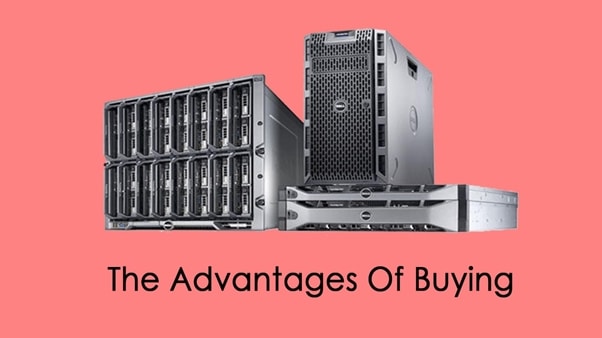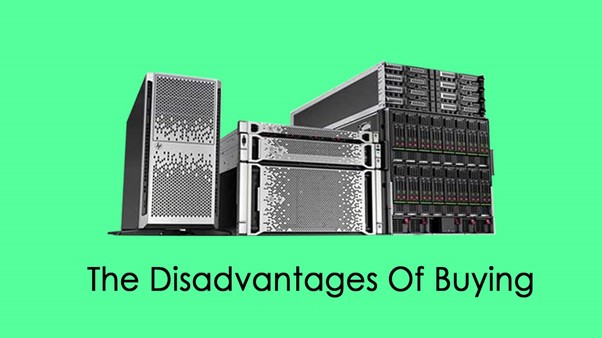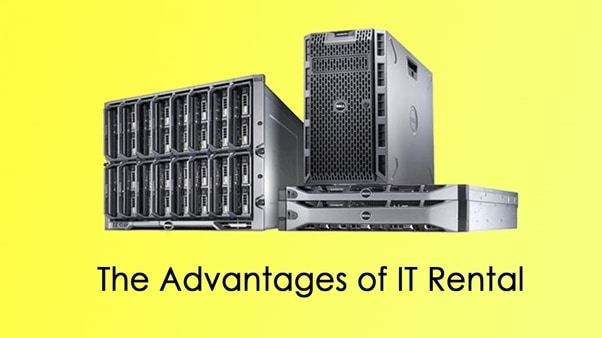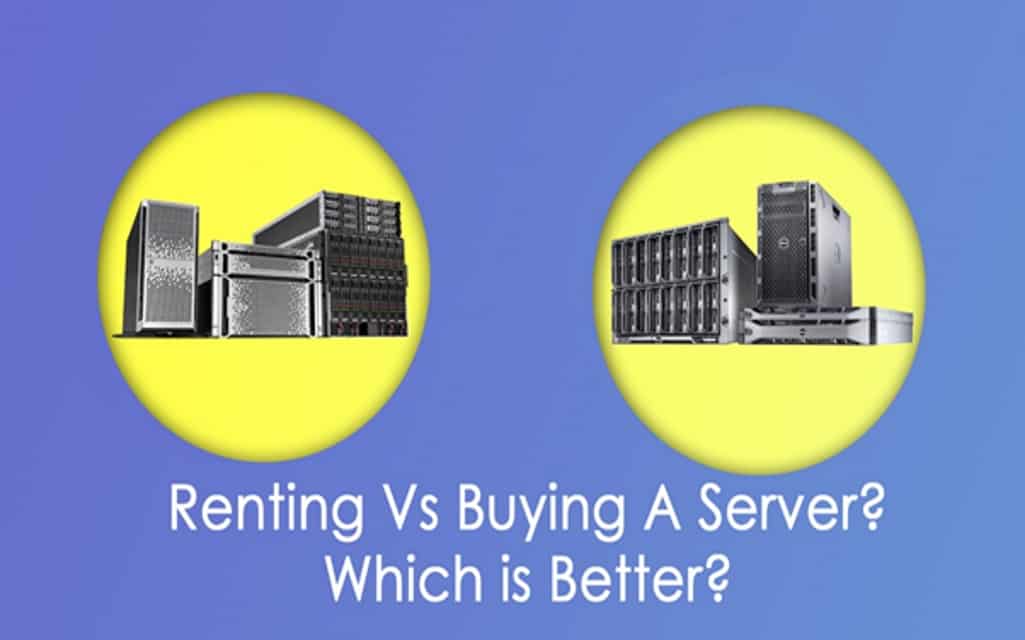The leasing or buying a server has its very own advantages and disadvantages as well and cannot be pinned point to say which one is better as it totally depends on each individual’s need, preference and budget. In this article let us look upon the benefits and the downsides of renting a server and of course purchasing a server.
There are many things to consider in the lease vs. buy decision making, and it requires important to so much homework to do to know which one would suit your current business scenario.
Start-ups and small businesses are more likely to choose affordable IT Rental solutions which will go easy on their IT budget as well as fetch some best-quality server with exceptional performance to keep up the business going. With the leasing factor, one can always keep the track up with the latest technologies by just not investing in them and keep moving as the pattern changes.
When you invest in a server, and the new technologies that are in the market you might likely to lose money as the purchased one is no longer going to be beneficial when a new technology comes in. An established company can always look for a brand new server with the latest hardware and technologies to keep the company’s performance up going and secure.
Let us pitch on some of the benefits and downsides of purchasing a server.
The Advantages Of Buying:

Firstly, purchasing is very easy as you get to decide what you need for the business and purchase the right server accordingly that matches with your budget as well, and also you don’t have to provide companies details, financial stats etc. as that normally happens in the leasing process.
Own Maintenance
The maintenance is up to you as in leased equipment is always been to be maintained as per the leasing company’s specifications by following their maintenance schedule, which you often might cost you more than is expected. But when you buy the equipment outright, you get to prescribe the maintenance schedule cycles yourself.
Lowers your Long-Term Costs
You will not have the burden to pay the interest rates as you do when you lease the server. Purchasing the server outright will only make a one-time investment as you pay a wholesome amount only at once.
Tax Benefits with IT Rental
You get some taxing advantages as any new assets can be deducted on your tax return, section 179 of IRS code allows you to deduct the full amount of the newly purchased asset, for example, any computer equipment in the first year term. With the leasing scenarios, called as operating leases where you can only deduct the monthly payment.
The Disadvantages of Buying

The server as a piece of equipment can be expensive, and when purchasing a new one will make you invest a significant amount of money at once or turn to a line of credit to pay for it. Those lines of credit or the funds taken can be used elsewhere for advertising, marketing or for any other aspects that help in the growth of the business.
Eventually, you might get stuck with the outdated, ruled out equipment. The computer equipment or the technology becomes outdated so rapidly with the technology advancement every now and then, and as a growing business, the requirement of new technology is demanded of every year and a half. That means you will basically get stuck with an outdated product and figure out what to do with it either to be sold or recycled and requiring you to purchase new equipment.
You might likely to face some unpredictable issues like if the system is faulty and you really don’t know how to deal with it or the warranty given is ruled out, you are just stuck with it and wondering what can be done with it. Hiring an IT rental will make you eligible for the latest updates
The advantages of IT Rental:

Access Latest Hardware
Leasing equipment will keep you up-to-date. Computer equipment and technologies will eventually become outdated. With the lease, you will outgain the financial burden of not investing in equipment. For instance, when you sign a two-year lease contract for a server and once those two years are done, you can give back the previously leased server and can now lease a newer server. Signing for a short-term lease allows you to update your technology more rapidly.
Pay for What you Use
Your monthly expenses are predictable as leasing equipment allows you to pay a monthly fee for your equipment i.e. called a pre-determined monthly line term, which can help you budget more efficiently. And sometimes, the leases will offer the fortuity to purchase the equipment after the leasing term expires if you would really want to.
Best for Start Ups
You won’t need any capital outlay as many small business or start-ups struggle a lot with the cash inflow. Leasing would definitely help them to keep up with it because leasing does not require any down payment and you can acquire the system without pouring in so much money at once, and instead, that amount can be allocated for various other requirements in the business growth.
Beat Your Competitors
You can easily be in the track to keep up with your competitors as you will be able to leverage to the latest/advanced technologies with IT rental which would have been unaffordable if you prefer to buy. IT rentals help you to keep up right there in the race with your larger competitors without draining your financial resources.
The Disadvantages of Leasing:
You would end up paying more in the long run and can be drawn to a vague conclusion that leasing will cost you more than purchasing. Leasing equipment and paying the monthly expenses which include the interest will cost you way more over the longer period of time than paying the money all at once during the purchase.
The obligations when in suppose you had to stop using the leased equipment for some serious reasons before the leased period of the term is not yet completed and once you have signed up for the certain leased period, you must continue to pay your monthly fees until your lease expires.
If you have decided on to go for leased equipment, here are some of the questions need to be asked for.
A capital lease or an operating lease? What kind of lease is you being asked to sign for? A capital lease is as same as the loan. With this type of lease, the server is considered to be your asset, and you get the benefits such as tax detachments and risks such as obsolescence of ownership. This type of lease will often last for a maximum of 5 years. With an operating lease, the leasing company holds the ownership and the equipment is considered a monthly operating expense rather than a depreciable asset. This is usually a short-term either for three years or less.
Ask for how long is the lease for? Generally, the lease period lasts for about 24, 36 or 48 months. The longer you lease, the lower will be your monthly fees, but this will also end up making you pay more with longer lease.
Can the lease term be terminated easily? You might face some situations where you no longer need the computer equipment that is being leased or want to upgrade to newer technology as per the growing business demands. What can be done in such a situation is to be known in advance if there will be any penalty or pay off the lease fees early.
Summary
Determining whether to lease or buy is upto you, and you need to find out your requirements and budget before making a final decision. You will need to know whether you will be using the server for a longer period of time or keep moving or switching to the newer models. These points will help you decide when to lease and when to purchase. Most importantly, you will have to evaluate your financial status and determine if you have enough amount to purchase it. Check whether you have enough credit options available or need an option that escalates the costs over the time.



